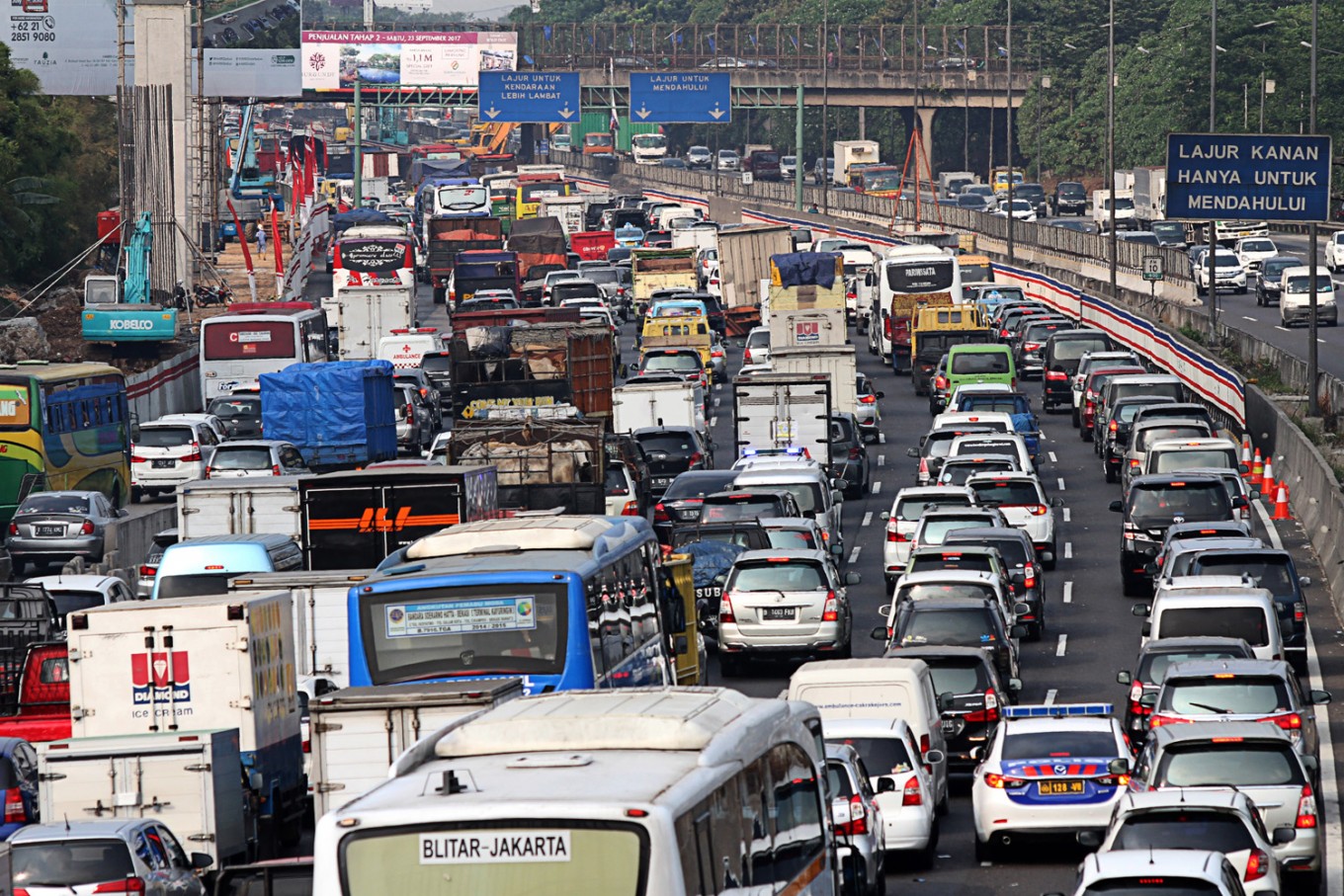Popular Reads
Top Results
Can't find what you're looking for?
View all search resultsPopular Reads
Top Results
Can't find what you're looking for?
View all search resultsEDITORIAL: Hurdles to the free highway
Imposing fees on e-Toll top-ups could hinder the development of a cashless society, which has been adopted by many other countries.
Change text size
Gift Premium Articles
to Anyone
I
n March 1978, when then-president Soeharto introduced the Jakarta-Bogor-Ciawi (Jagorawi) toll road and required motorists to pay for access to a public highway, the government promised that access to the country’s first turnpike would become free once it had recouped its investment in that infrastructure project.
The toll road project ran smoothly, due in part to the public’s understanding that the burden would only be temporary. More than 40 years later, state-owned toll road operator PT Jasa Marga and the public works ministry have built dozens of other toll roads, partly on the back of profits from the Jagorawi toll road, but none of them gives free access to the public.
Then the government ruled that starting from Oct.1, motorists will have to use electronic money (via an e-Toll card or a smartcard) to pay tolls. Again, the general public seemed to accept the policy, as it is designed to improve the traffic flow at tollgates. But the public was understandably flabbergasted, even to the point of becoming angry, when banks announced that they would charge a fee for topping up e-Toll cards. Yet even more misguidedly, Bank Indonesia, which is supposed to promote electronic transactions and the digital economy, approved the top-up fee.
We certainly don’t understand why e-Toll cardholders have to pay to top up their cards, because the card functions as a debit card that is backed by a savings account or prepaid credit. Imposing fees on e-Toll top-ups could hinder the development of a cashless society, which has been adopted by many other countries. A cashless payment system should especially be promoted in a country where cold hard cash has been the main mode of corruption and money laundering.
Further, cashless transactions will promote a more efficient economy, save costs in printing and distributing banknotes, and make it easy to track and trace payments. Furthermore, as all cashless transactions are recorded automatically, financial activities will become more transparent and accountable. We cannot resist the development of the digital economy, despite its impact on low-skilled jobs.
For consumers, a cashless system undoubtedly also enables transactions to be conducted 24 hours a day, cutting down administrative and other service costs. They are just like ATMs that enable banks to expand their operations without opening branch offices that incur big fixed costs: Banks only need to invest up front to set up ATMs, but this IT investment enables them to externalize part of their operational costs.
We’re glad to learn that state banks, which account for more than 40 percent of the banking industry’s assets, have committed to not charging any top-up fees. We don’t see any problems for major private banks to follow suit.
Still, the government, notably the central bank, should be more proactive in developing a payment service infrastructure that fully supports the new ecosystem of electronic payments. The government should help bridge the great gap that exists now between active e-payment cards and receiving points, especially outside Java.










